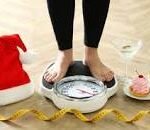Is it true my morning caffeine is depleting my minerals and B vitamins? Should I wait to take my supplements until I have finished my coffee? The short answer, Yes!
Calcium
All the research I can find states that per 150 mg (about one cup) of caffeine, roughly 5 mg of calcium is lost. This is mainly due to increased urination. We know that when calcium is lost through urine the parathyroid jumps all over returning blood calcium to homeostasis. Caffeine also inhibits the amount of calcium that is absorbed through the intestinal tract and decreases the amount left to be retained by the bones. So, if you are an all-day coffee drinker, over time you may in fact see some negative effects. Studies have shown that women with high caffeine intake suffer more hip fractures than those who avoid caffeine or drink in moderation (1 to 2 cups per day).
Magnesium
Magnesium is a crucial mineral that works with calcium and vitamin D to facilitate the muscle contraction-relaxation response and aid in energy production; it also plays a key role in more than 300 enzymatic reactions in the body. Therefore, depletion due to coffee intake can be worrisome.
Iron
Caffeine interferes with the body’s absorption of iron, which is necessary for red blood cell production. Drinking caffeine at the same time as an iron source can reduce absorption by up to 80%, according to the Nutrition Desk Reference. Any beverage containing caffeine should be separated from iron-containing foods or supplements by at least one hour.
B-Vitamins
Given that caffeine has a mild diuretic effect, we end up with increased urine output. Water soluble B vitamins can become depleted due to this extra fluid loss. Caffeine also interferes with the metabolism of certain B vitamins including Thiamin (B1). Oddly enough, research shows the opposite to be true with Cobalamin (B12). Caffeine stimulates the production of stomach acid which promotes the absorption of B12.
Vitamin D
Caffeine inhibits vitamin D receptors, which limits the amount that will be absorbed. Because vitamin D is important in the absorption and use of calcium in building bone, this could also decrease bone mineral density, resulting in an increased risk for osteoporosis.
Other Vitamins and Minerals
Caffeine may reduce the absorption of manganese, zinc, and copper. It also increases the excretion of the minerals potassium, sodium, and phosphate. There is also evidence that caffeine interferes with the action of vitamin A.
Conclusion
While there are many positive effects and plenty of healthful compounds in coffee, tea, and dark chocolate, be smart about consumption. If you do find you are deficient in any of the nutrients or want to be proactive, consider a good supplement plan. Please contact us with any questions.
Please review our business at: Google Yelp Facebook
If you’d like to learn more, please visit our Member’s Area to access our subscribed content.
Did you know you can work out and exercise with a trainer at your home, office, hotel room, or anywhere in the world with online personal training?
Like us on Facebook/Connect with us on LinkedIn/Follow us on Twitter
Make sure to forward this to friends and followers!






